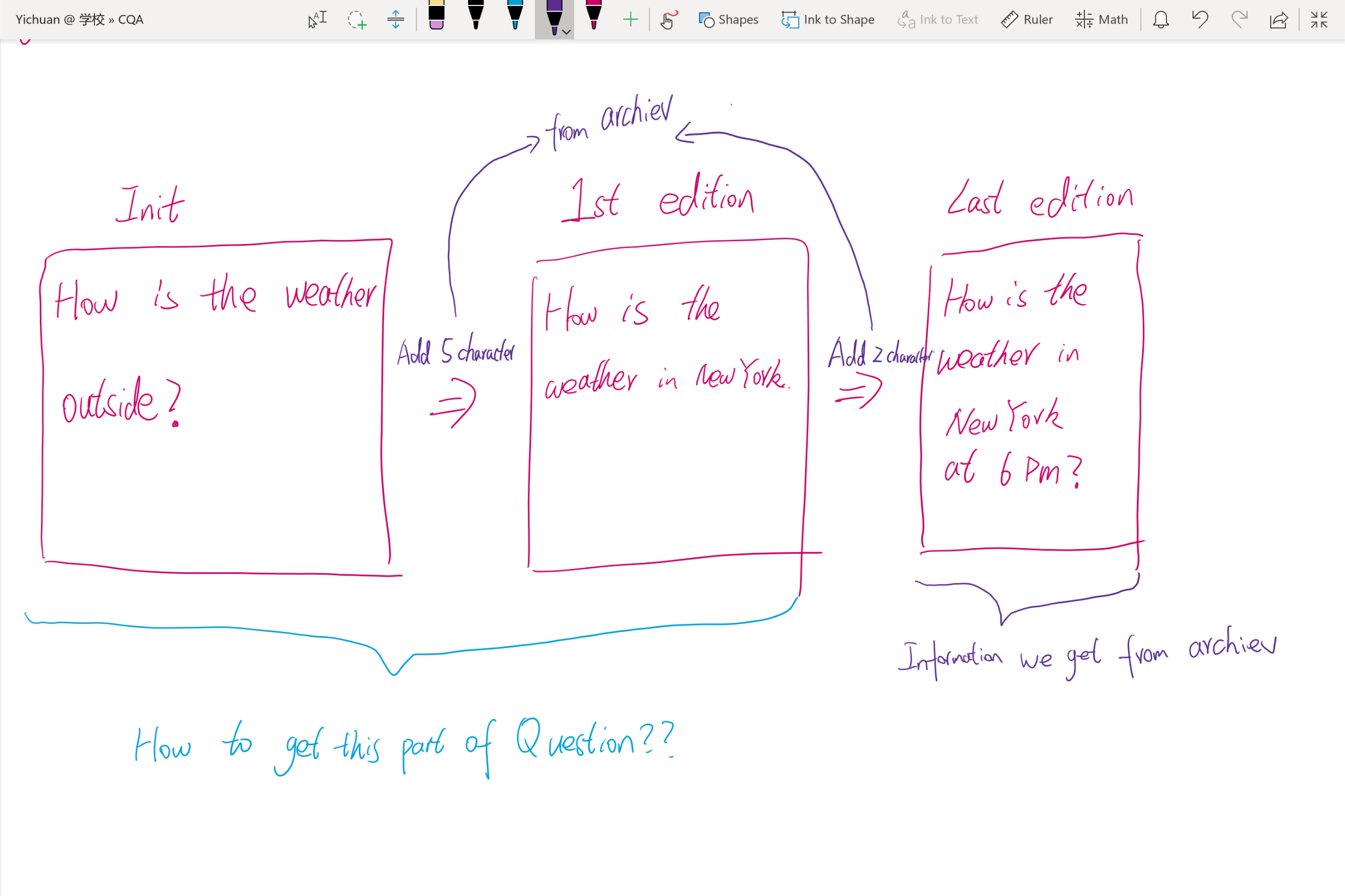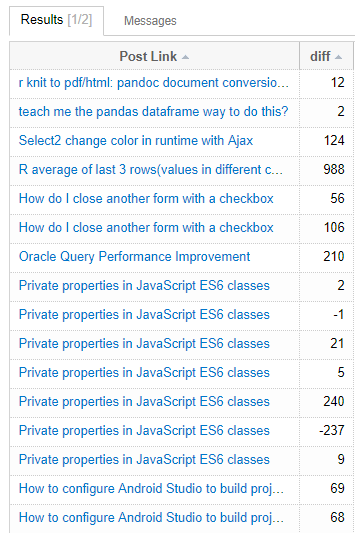We would like to model the complete process of a user posting a new question and editing their question.
We found the data in archive.org, PostHistory.xml, which only contains the comments about the edit (for example, added 180 characters in body; edited title). We have no way to find the initial text and which parts of the information has been edited, so it is hard for us to model the change.
We found that we can crawl the change from users' activity -> revision (for example, https://meta.stackoverflow.com/users/{example_ID}/{user-name}?tab=activity&sort=revisions).
Are there other ways for us to collect the text of the initial question and the text for the edited question?
We want our model to give a suggestion when the user asks a question (for example, "You should introduce a question with more background information" or "Please add the code block"). So it is easy for the user to post a good question.



edited X minutes agooredited yesterday